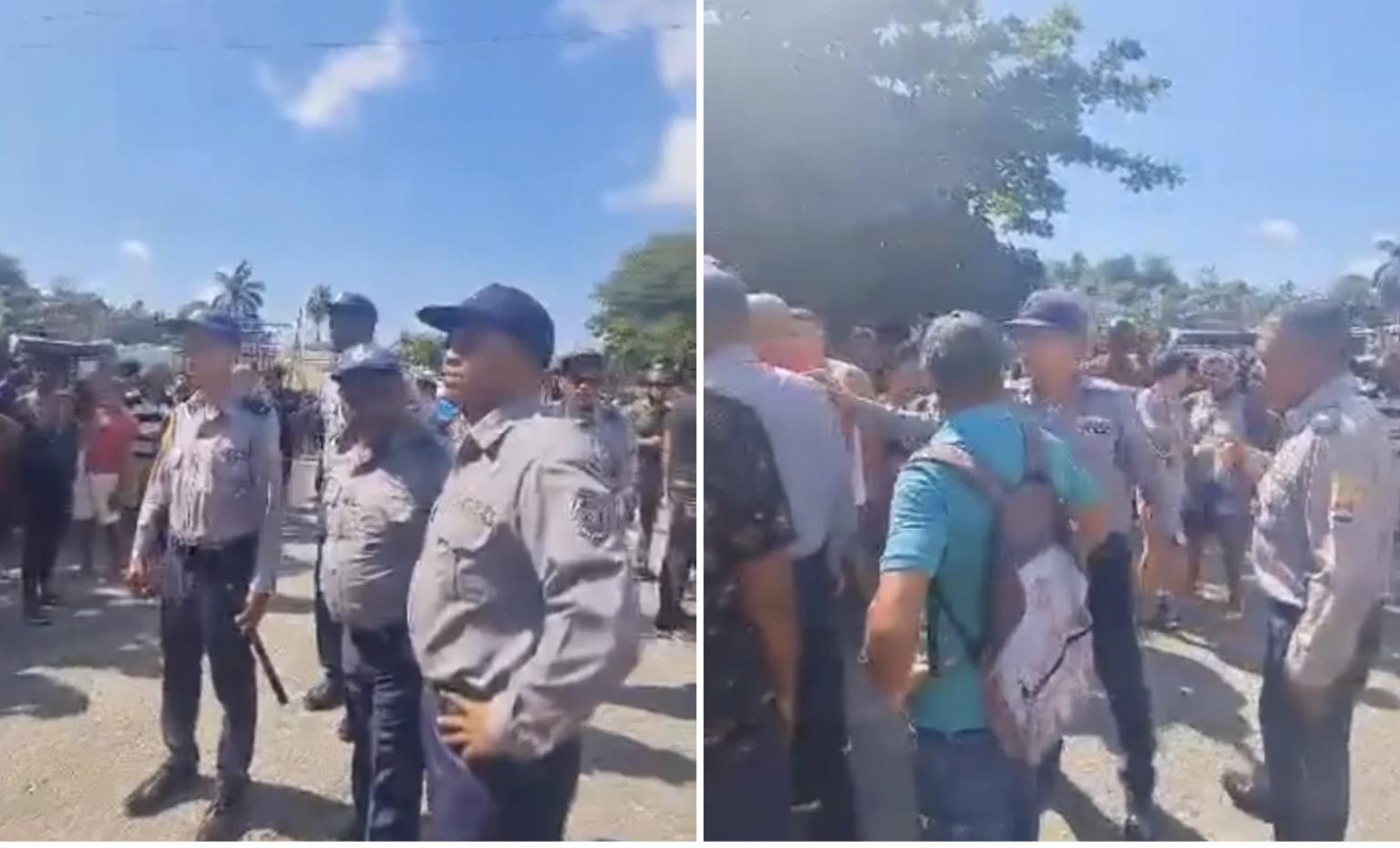Public protest in Cuba remains heavily suppressed
In this interview with Radio Martí, Michael Lima, Director of Democratic Spaces analyses the regime’s new change of narrative in response to the protests in Santiago de Cuba and other cities on March 16-18,204
By Michael Lima. March 21, 2024
There are strategic changes in the official narrative of the Cuban dictatorship. Spokespersons of the Cuban regime, for the first time in more than 6 decades, announced in Granma and at the March 18 Roundtable the recognition of the legitimacy of the protests in Santiago de Cuba and other places on the island on March 16-18.
Ever since a group of university students staged a protest in Central Park on February 5, 1960 against the visit of Anastas Mikoyan, Vice Premier of the then Soviet Union, all forms of protest have been repressed and delegitimized in Cuba.
Leandro Hidalgo Pupo, a mathematics student at the University of Havana who shouted "down with Fidel" at a boxing event at the Ciudad Deportiva (Sports Arena) in Havana on February 23, 1990, was confined to a psychiatric hospital, subjected to all kinds of torture and information about his whereabouts has remained unknown ever since.
In 2009, economist and activist Karina Gálvez had the patio of her house confiscated, where she was carrying out the activities of the Convivencia Project. The Ladies in White have not been able to demonstrate for several years because they are arrested every time they leave their homes to march.
There are more than a thousand political prisoners in Cuba and most of them have been imprisoned under fabricated charges for exercising their right to peaceful protest on July 11 and in protests during 2022 and 2023. The reality of Cuba today tells us that there is no political will of the Cuban regime to respect a fundamental human right such as free expression, association, peaceful protest or any other civil or political freedom.
What we see is a change of repressive façade that responds to the regime’s high degree of unpopularity and the deterioration of its international image in the face of Miguel Diaz-Canel's combat order and the possibility of many more protests in the following months in a context of inhumane blackouts, lack of food, medicines and humanitarian catastrophe according to a report on social rights of August 2022. More than 60% blame the government and its policies and only 8% of more than 1,200 respondents blame the U.S. embargo.
Otherwise, the Cuban regime would cease the arrests of protesters. Until March 19th, reports from the organization Justice 11J spoke of at least 10 detentions in connection with the protests in Granma and Bayamo on March 17th, with two individuals released. One of them, Leandro Tamayo Tito, was released on the night of March 18th with a fine of 3,000 CUP for the charge of "public disorder" and was prohibited from staying in Granma, which is not his province of residence.
Members of the called National Revolutionary Police (PNR by its acronym in Spanish) during the Santiago de Cuba protests on March 17, 2024. Capture screen photos from videos anonymously sent from Cuba.
Respecting the right to protest involves the regime refraining from slowing down internet traffic during demonstrations. It entails halting its double standard of superficially acknowledging protests while perpetuating a colonial discourse that defames, underestimates, belittles, and mocks the intelligence of the Cuban people and their capacity for independent thought. The regime should acknowledge the people's ability to observe their environment of misery, raise their voices, and demonstrate without being manipulated by remote control from another country.
Police cars in Santiago de Cuba. Photo/Diario de Cuba.
If the Cuban regime respected the right to peaceful protest, they would release Luis Robles, who did nothing more than peacefully demonstrate with a sign on the boulevard of Old Havana calling for an end to repression in December 2020. They would also free José Daniel Ferrer, who was brutally arrested and imprisoned for merely leaving his home with his son to participate in the protests in his province. Additionally, they would release Luís Manuel Otero, who urged everyone to join him in demanding their rights on 11J, as well as Maykel Castillo.
If they were to respect the right to free demonstration, they should approve the Amnesty Law proposed by the Council for Democratic Transition in Cuba and release thousands in Cuba who are behind bars for peacefully demonstrating for their rights and all Cuban political prisoners.
The Cuban people know their misery, they do not need a party bureaucrat to repeat the Granma editorial, nor do they need a humiliating explanation of how many milligrams of rice they will receive in March. The people of Cuba reject the system, blame it for their misery and demand their right to live in freedom.
—
Michael Lima is a human rights activist and an expert in Cuban and Latin American history and politics. He has lectured on modern Latin American history, holds a Master’s Degree/Ph.D. candidacy in Latin American History from the University of Toronto, and is the founder of Democratic Spaces, an NGO seeking solidarity in Canada with human rights defenders and civil society in Cuba.

